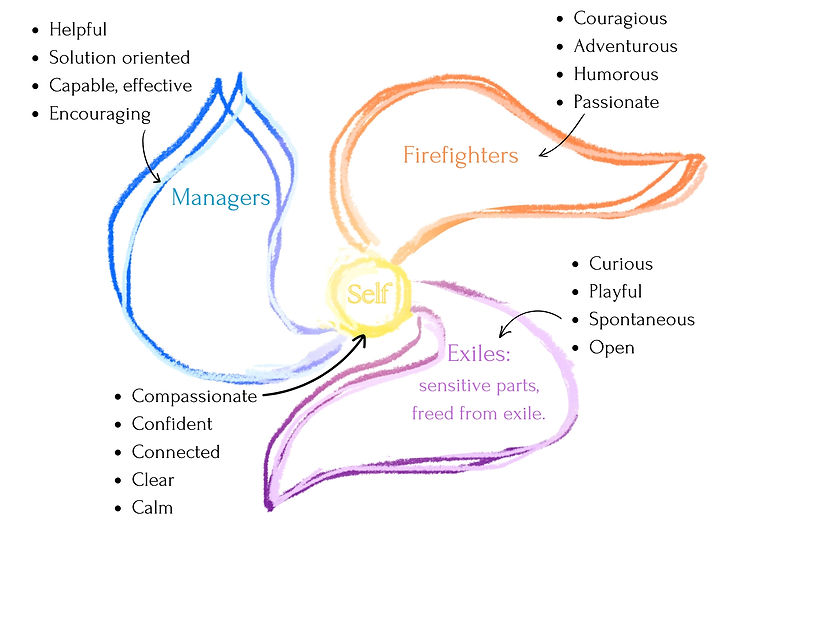Within IFS, personalities or parts are divided into three groups:
-
Exiles
-
Firefighters
-
Managers
In a liberated or unburdened inner system, the parts stand in their power,
in connection with the Self.
Exiles can transform into playful, creative parts,
firefighters provide healthy relaxation
and managers take responsibility in an aligned manner.
When the internal system is burdened, there is less room for an embodied sense of Self.
Exiles can flood the system with fears or sadness,
firefighters, for example, project their anger onto the outside world
and managers try to keep the system under control.
The unburdened internal system:

The burdened internal system:

Example:
snapshot of an internal family system
Actually, the inner system can't be captured in images, because the parts continuously change and transform.
It is a snapshot: at each stage, other parts can emerge to protect us in new situations.
In addition, there are also helpers - guides - who can stay with us for a longer period of time and do not need to be unburdened: they provide guidance from the Self in a natural, spontaneous way.
Cloud,
young exile
Monk,
Self-aspiring part

Pianist,
unburdened exile
Unburdened manager,
harvesting
Tree-like figure,
unburdened manager
Two young exiles
The sower,
helping guide
Meditating woman,
helping guide
Painting: Isabelle van Dooren
Ganesha
Many archetypal personalities emerge during IFS sessions
that we actually share with each other:
parts that we can also set free and heal together, step by step.
The Indian god Ganesha, for example, portrays the archetype of the liberated firefighter; he takes the time to taste the inner sweetness of existence.
In the unburdened system, firefighters provide relaxing activities and breaks so that we can recharge.

Wisdom keeper
~ aspect of Self
Sweet tooth
~ aspect of
a firefighter
Mural painting: Isabelle van Dooren
